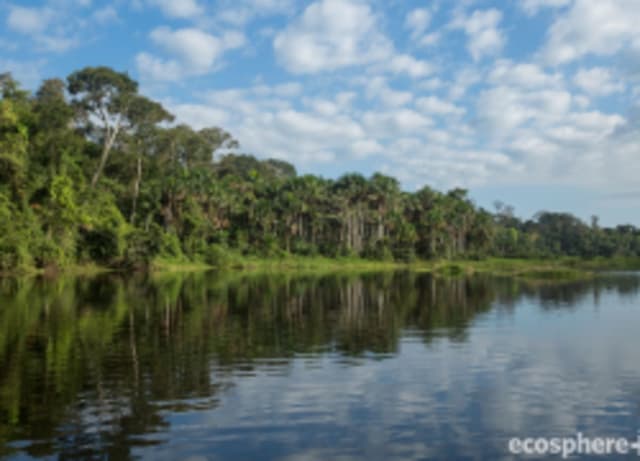Sign up. Be inspired. Get clicking.
How does climate change affect the biodiversity of marine ecosystems
13 January 2023
Climate change poses a significant threat to marine ecosystems across the globe. Rising global temperatures and increased absorption of carbon dioxide by the oceans are having profound effects on marine life. These changes, ranging from warmer surface waters to more acidic deep waters, are creating severe challenges for marine species.
In this detailed article, we delve into how climate change is impacting biodiversity in our oceans, which is vital for assessing the state of marine health. The rapid transformation of the planet's climate is heavily influencing marine habitats, leading to declining species diversity. This trend is evident in environments as varied as coral reefs and the deep ocean, underscoring the extensive consequences of these shifts.
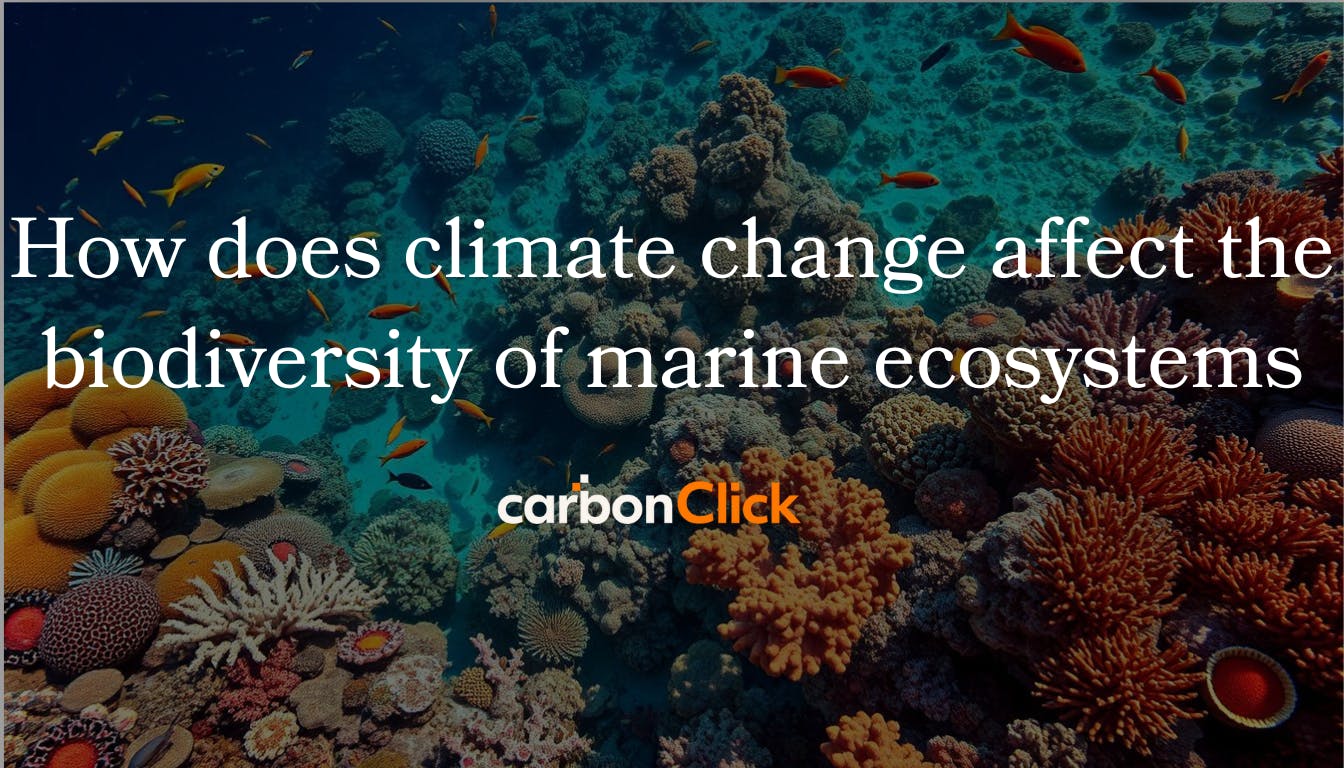
Understanding marine biodiversity
The oceans are home to remarkable marine ecosystems, each teeming with diverse species. This variety is essential for maintaining the health of our planet.
From tiny plankton to massive whales, every organism plays a crucial role in the functioning of these ecosystems. Together, they contribute to the stability of oceanic systems.
Marine ecosystems provide numerous valuable services, including food supply, coastal protection, and carbon absorption. A rich diversity of species reflects a thriving ocean.
Safeguarding marine life is crucial for our future. Its importance extends beyond natural systems to supporting societies and economies. Understanding the intricate relationships between marine species and their habitats is key to ensuring their protection. By recognising the importance of marine life and its contributions, we can secure a sustainable future for both the oceans and humanity.
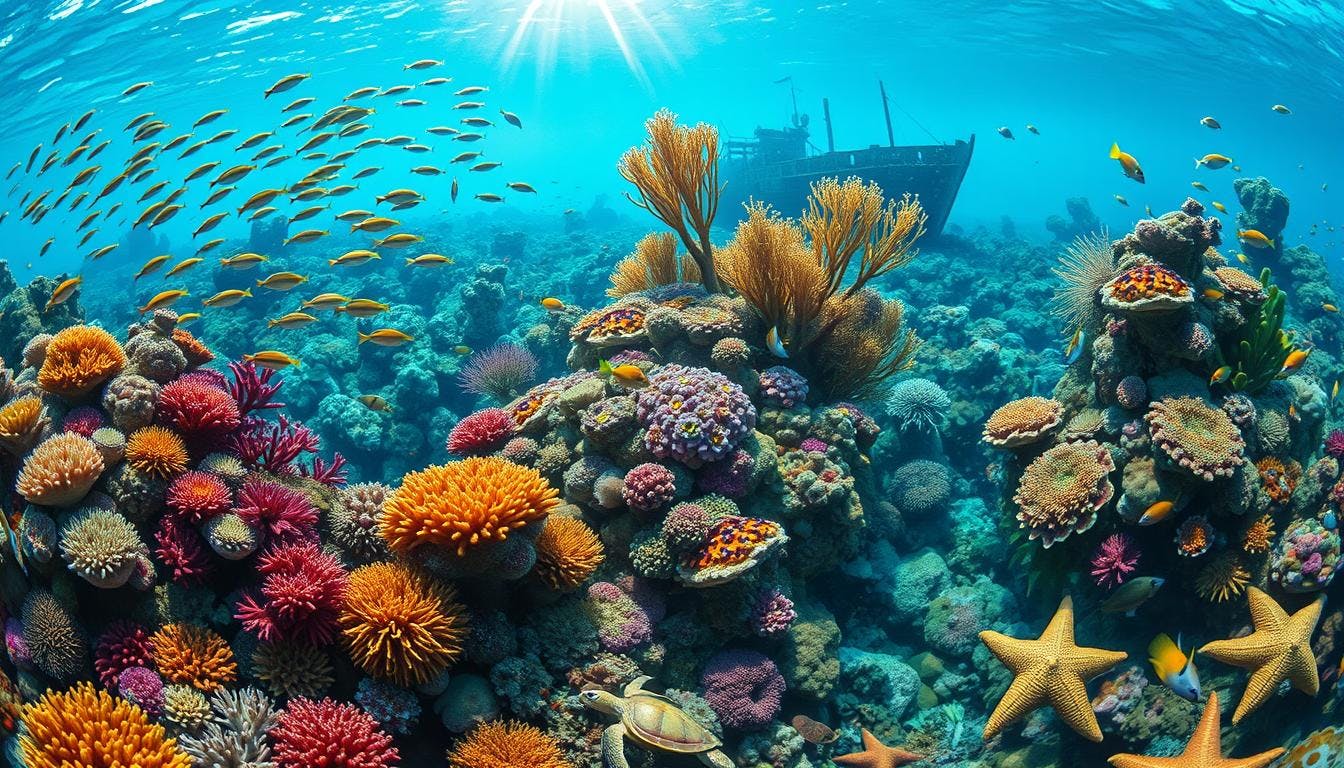
The basics of climate change
Climate change is altering our planet's environments and ecosystems. It is driven by the accumulation of greenhouse gases such as carbon dioxide and methane in the atmosphere. These gases trap heat, leading to a rise in the Earth's temperature, a phenomenon known as global warming.
Human activities, including burning fossil fuels and deforestation, release significant amounts of these gases. This disrupts the Earth's climate systems, which have supported life for millennia.
The consequences of climate change are far-reaching and could have serious impacts on our planet, economies, and communities. Rising sea levels and increasingly extreme weather events are just the beginning. Changes in climate patterns and disruptions to food production also present major challenges for the future.
Direct effects of climate change on oceans
Climate change is causing significant challenges for our oceans. One major issue is ocean warming, where the seas absorb excessive heat. This leads to rising sea temperatures, which harm marine life. Many sea creatures struggle to cope with these changes, disrupting their ecosystems.
Sea levels are also rising due to climate change, driven by melting ice and the expansion of warmer water. Vital habitats such as mangroves and coral reefs are under threat, as they face flooding and damage from increasing sea levels.
Additionally, climate change is making the oceans more acidic. This occurs when the seas absorb large amounts of carbon dioxide, leading to increased acidity. This is particularly harmful to marine species with calcium-based shells, making it difficult for them to build and maintain their structures. This poses a serious risk to the ocean's food chain and biodiversity.
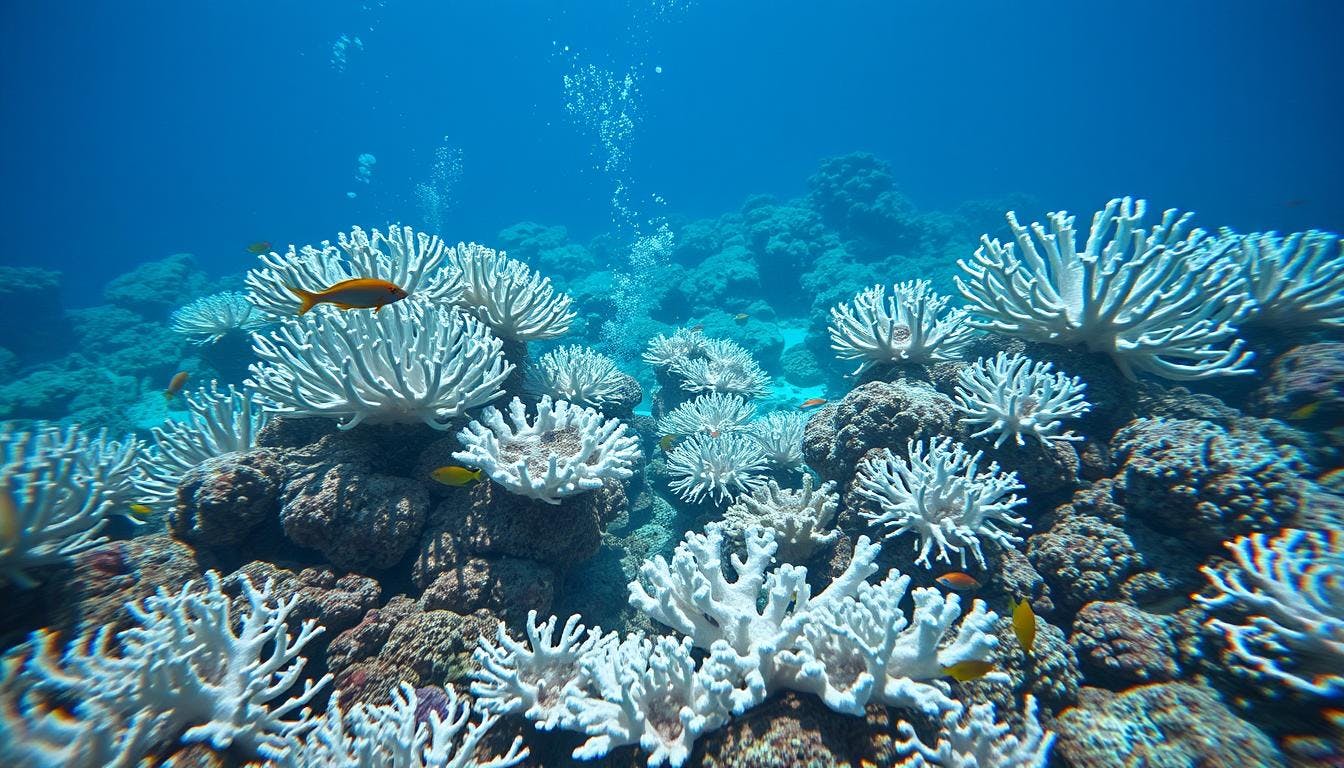
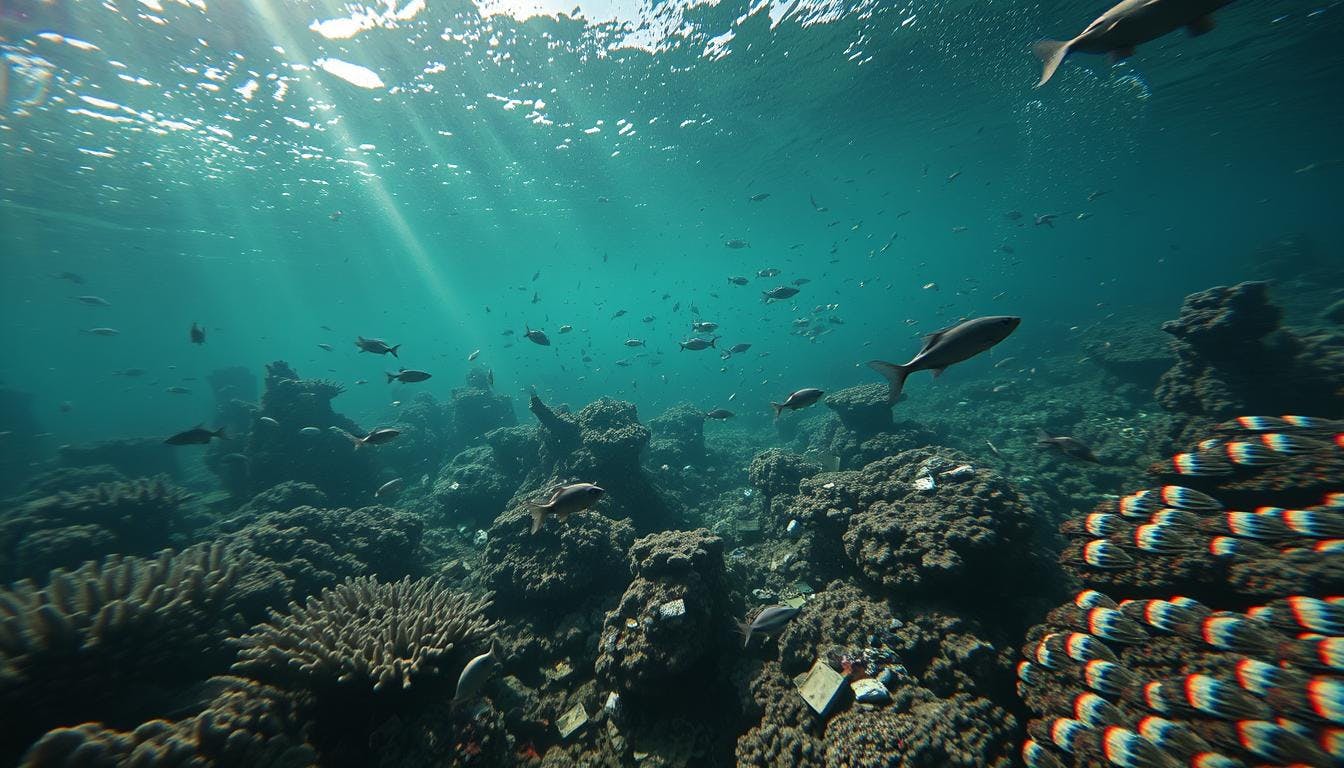
Changes in habitats and ecosystems
Climate change affects more than just the ocean's surface; it significantly alters marine habitats and ecosystems. Coral bleaching is a major issue caused by warmer and more acidic waters, leading to corals losing the algae essential for their survival.
Habitat loss is another pressing concern. Environmental changes disrupt marine ecosystems, with polar regions losing sea ice, affecting species like seals, walruses, and polar bears.
These changes have widespread consequences. The loss of habitats such as coral reefs, mangroves, and seagrass beds endangers numerous species and threatens the overall health of our oceans and their ecosystems.
Species affected by climate change
Climate change extends beyond land, posing significant threats to marine ecosystems and their inhabitants. Many marine species struggle to adapt to rapid changes such as warming waters, acidification, and reduced prey availability.
Fish, including economically important species, face the risk of extinction as they migrate in search of new habitats. Marine mammals like polar bears and seals are under severe threat due to melting sea ice, which is rapidly eroding their environments.
Invertebrates such as corals and shellfish are also at great risk. Coral reefs, vital for marine biodiversity, are particularly vulnerable to warming waters and acidification, which can lead to widespread bleaching and ecosystem collapse.
Although some marine species show signs of adaptation, the pace of climate change is overwhelming. Scientists and conservationists are working urgently to understand these challenges and develop strategies to safeguard these essential ecosystems.
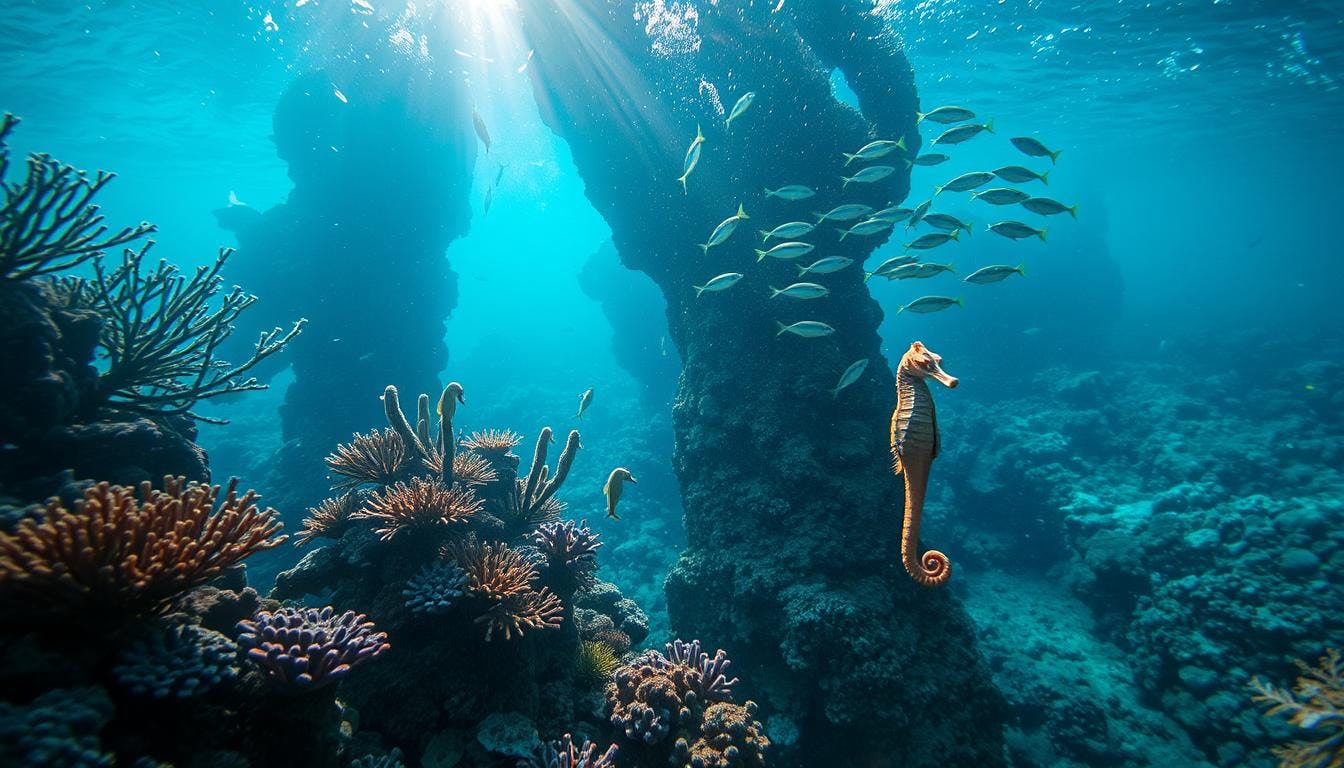
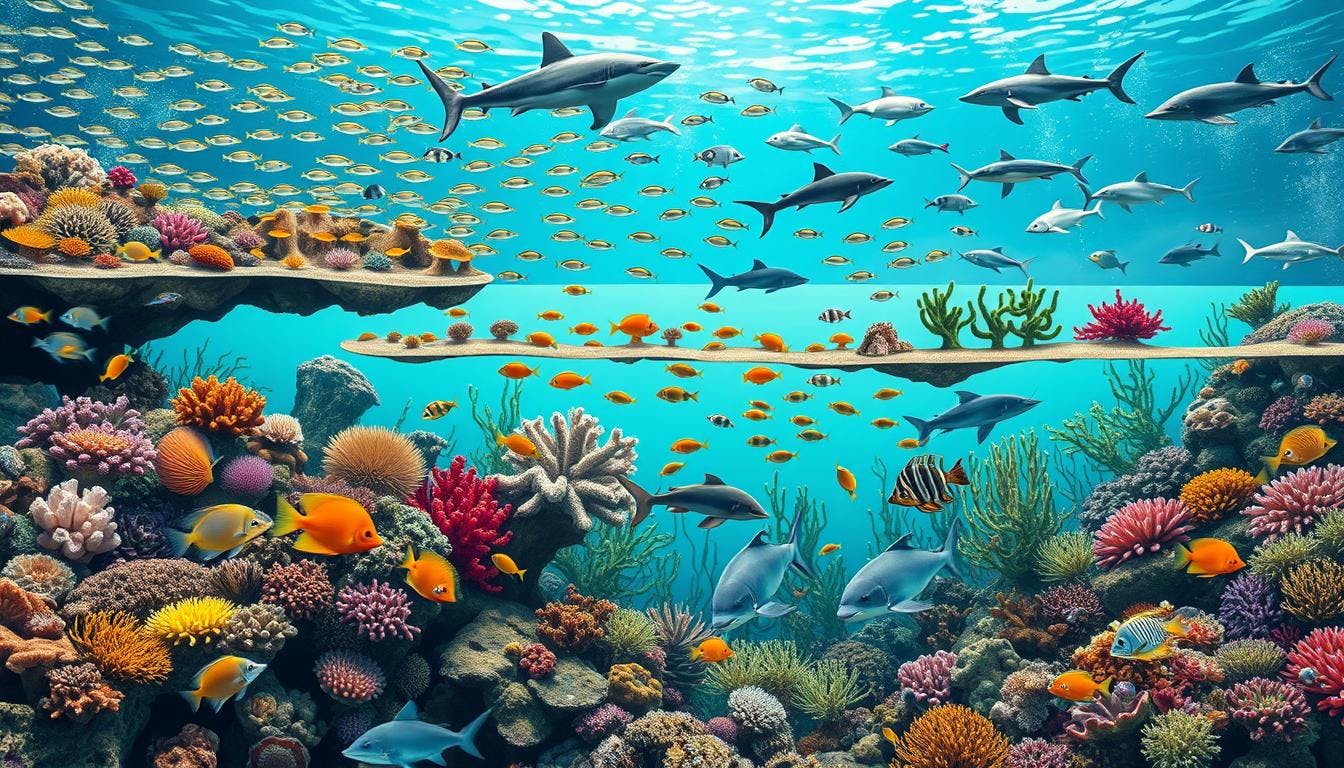
Food web disruptions
Climate change poses a significant threat to marine food chains. Rising temperatures and shifting ocean currents disrupt the relationship between predator and prey, leading to what is known as trophic cascades. This can destabilise entire ecosystems.
When a key species in the food chain is affected by climate change, the impact can be widespread. For instance, a decline in plankton reduces food availability for small fish, which in turn affects larger fish that rely on them. This can lead to a sharp drop in biodiversity and the loss of numerous species.
Invasive species also present a major problem. Climate change allows some species to thrive, pushing out native ones and altering the ecosystem’s composition, which harms local plants and animals.
Maintaining the health of marine food chains is crucial to preserving our oceans. Understanding how climate change impacts these ecosystems is essential for developing better methods to protect and manage our marine resources.
Altered migration patterns
Climate change is altering the migration paths of many sea creatures. Rising ocean temperatures and shifting habitats are forcing them to seek new migration routes and breeding grounds. This change in species distribution can disrupt the stability of marine ecosystems.
Many fish are now moving towards the poles in search of cooler waters, leaving their traditional breeding grounds vacant. This not only impacts fishing industries but also disrupts the food chain, as predators lose their usual prey. Seabirds are also adjusting their migration routes in response to changes in ocean currents and food availability.
These changes in migration patterns are difficult to predict and manage. Marine conservation efforts must adapt to these shifts. It is crucial to protect key habitats and allow species to adjust to their changing environments. Understanding how climate change influences migration routes and breeding grounds is essential for safeguarding our oceans.
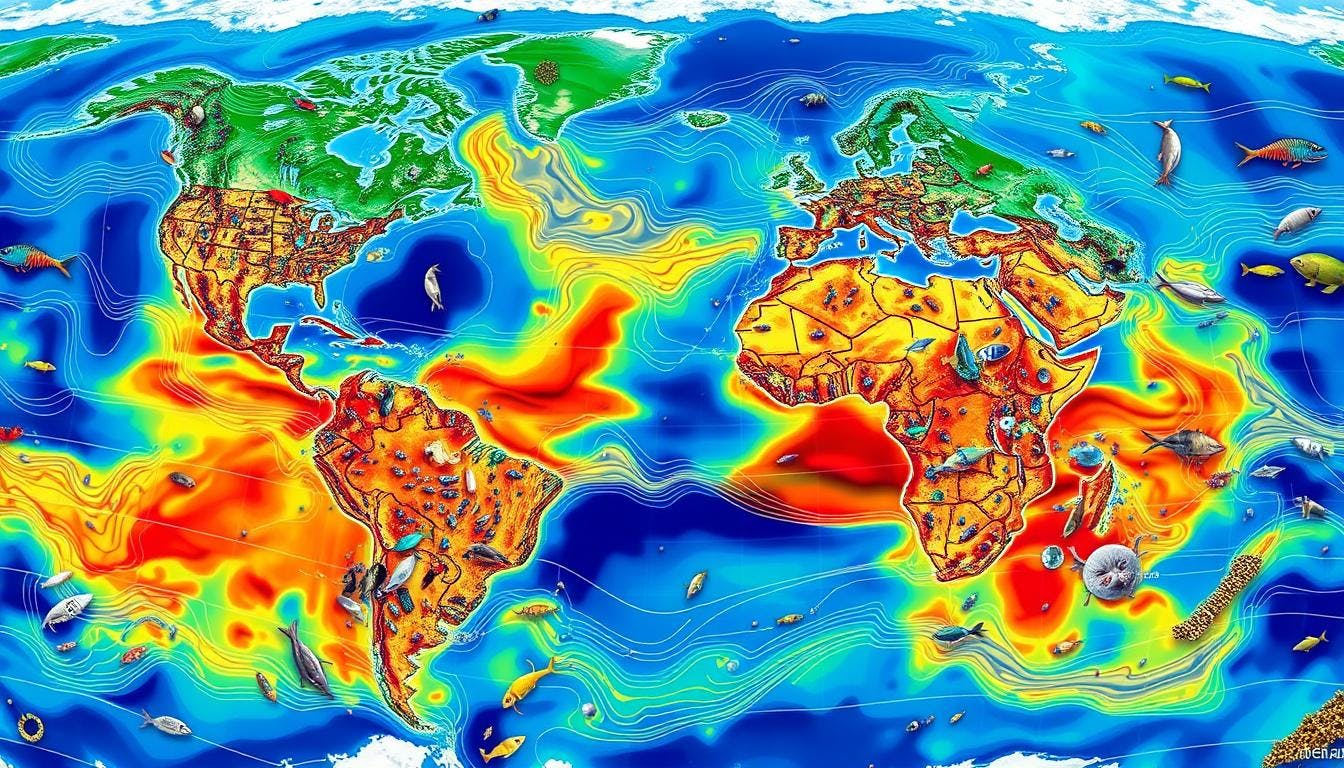
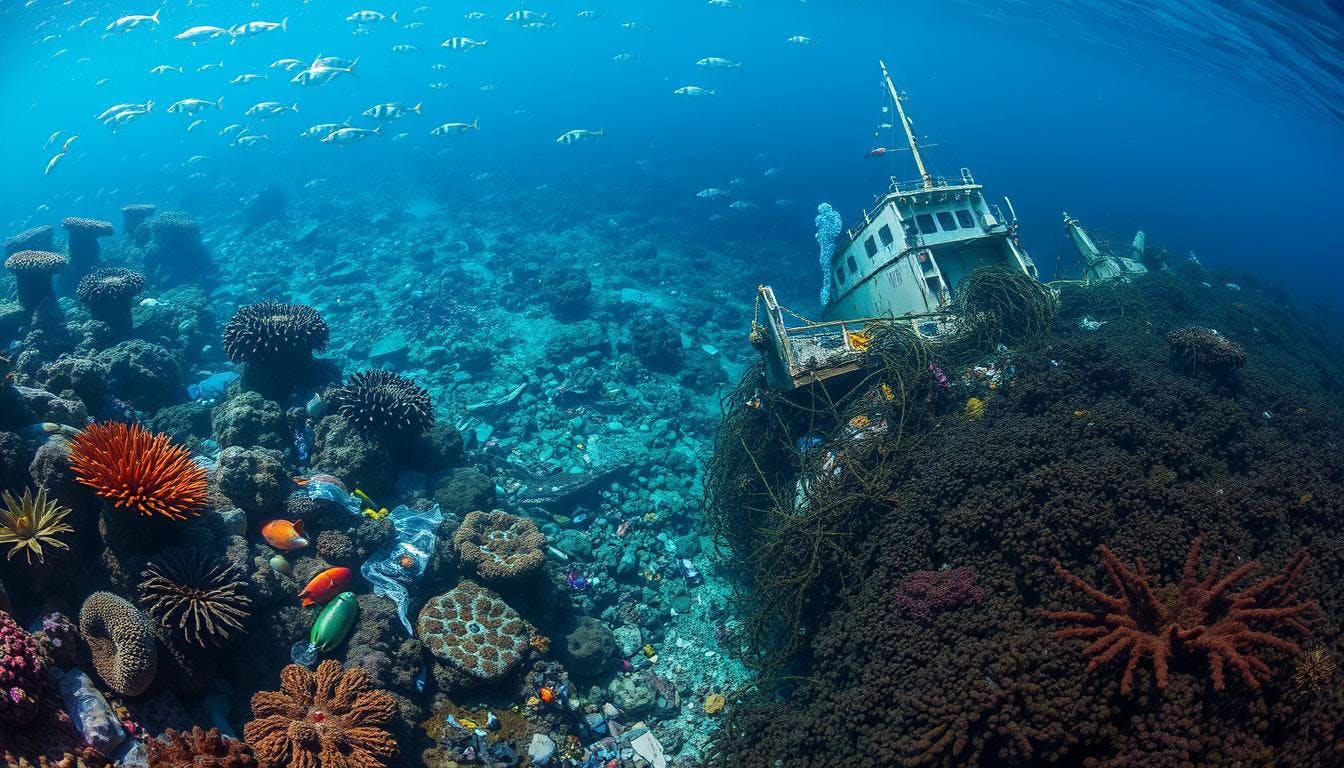
Ocean pollution and climate change
The health of our oceans is closely linked to climate change. Marine pollution, such as plastic waste and chemical runoff, exacerbates the effects of global warming. Rising ocean temperatures and shifting currents harm marine ecosystems, creating a cycle of damage.
Plastic waste poses a significant threat to marine life. It takes centuries for plastic to degrade, causing harm to sea creatures. Microplastics, the small fragments plastic breaks down into, are ingested by many species, disrupting food chains and introducing harmful toxins.
Chemical runoff from industries and agriculture also damages the ocean. It alters the ocean's pH, disrupts nutrient levels, and triggers harmful algal blooms. These blooms deplete oxygen, leading to the death of other marine life. Climate change increases the frequency and severity of these pollution events.
To tackle ocean pollution and climate change, we need comprehensive action. We must reduce waste, lower emissions, and support the recovery of marine ecosystems. By collaborating, we can safeguard the ocean's biodiversity and protect the future of our planet.
Community responses to biodiversity loss
Climate change is severely impacting marine ecosystems. Coastal communities and conservation groups around the world are taking action, demonstrating how local efforts can make a significant difference in marine conservation.
Community projects are at the forefront of promoting sustainable fishing. These initiatives employ responsible fishing methods and support the recovery of fish populations. For example, in the Philippines, local marine protected areas have contributed to the restoration of coral reefs and fisheries, benefiting both marine life and the local population.
However, the focus extends beyond fishing. Communities are also leading efforts to clean coastlines, restore mangroves, and protect vital habitats. In Kenya, the Watamu Marine Association engages local volunteers in beach clean-ups and marine conservation education. These actions address immediate challenges while fostering a sense of shared responsibility within the community.
These community-driven projects highlight the crucial role of local people in safeguarding the oceans. By supporting these initiatives, we can make a significant impact in preserving our oceans for the future.

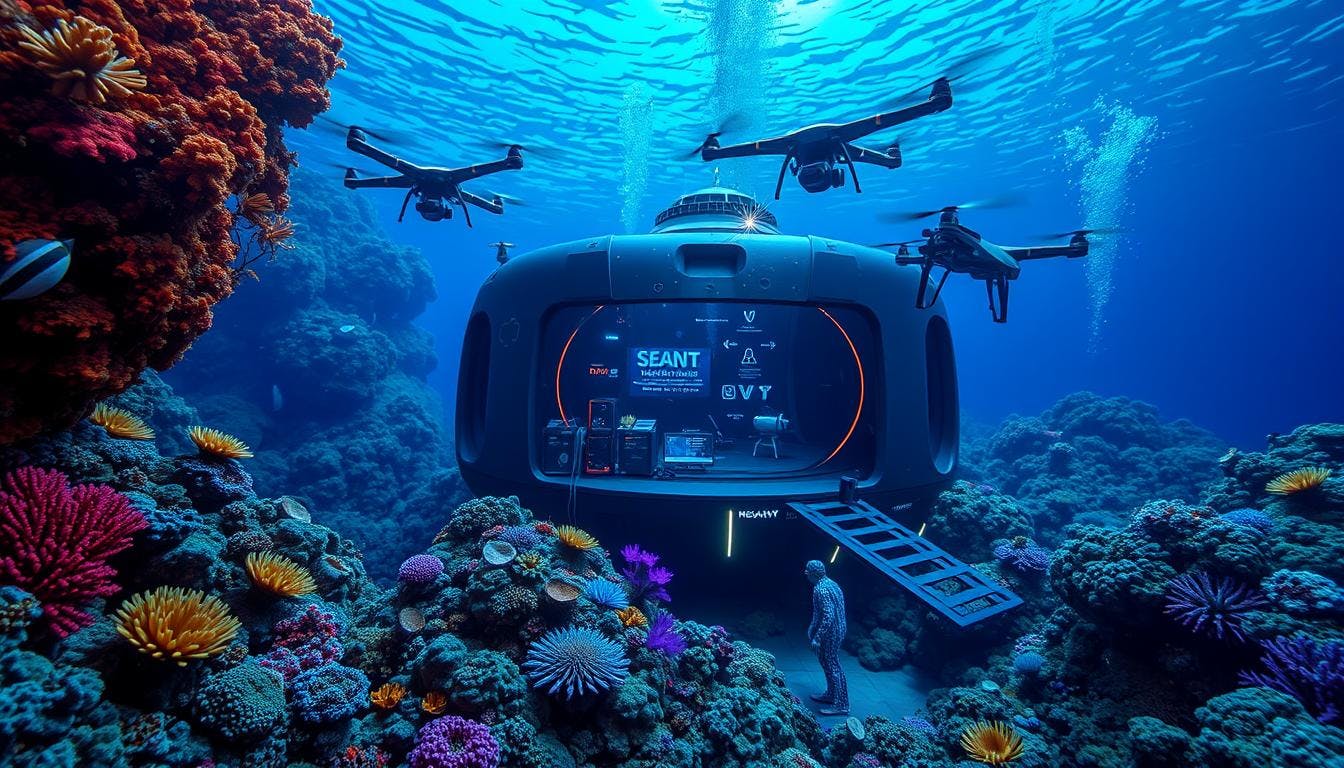
Technology and innovation in conservation
Environmental challenges facing our marine ecosystems are urgent. New technologies and tools are helping to protect biodiversity. Advanced satellite systems and underwater drones are at the forefront, providing innovative solutions to safeguard our oceans.
Genetic techniques are gaining popularity in marine conservation. These methods enable scientists to monitor the health and populations of marine species. By analysing environmental DNA, researchers gain insights into species diversity and distribution, guiding conservation efforts.
Drones and underwater robots are also making a significant impact. These devices can explore and monitor sensitive areas, track endangered species, and gather data without human intervention. As these technologies advance, they will further revolutionise marine conservation.
These cutting-edge tools assist researchers and conservationists in addressing challenges such as climate change. With satellite monitoring, genetic analysis, and robotic exploration, we are advancing towards a more sustainable future for our oceans.
Future predictions for marine biodiversity
Scientists are using advanced climate models to predict the future of marine life. These forecasts reveal a mix of positive and negative outcomes. Some ocean areas might remain resilient, while others could face severe challenges.
One major concern is tipping points. These are critical thresholds where small changes could trigger significant shifts in the ocean. For example, coral reefs are vulnerable to warmer waters and pollution. If they collapse, it could have a devastating impact on the entire food chain.
However, not all ocean areas are at risk. The deep sea and polar regions may be more resistant to climate change, providing potential refuges for species trying to escape the changes in other areas.
The future of marine life remains uncertain. It depends on how we respond to the challenges of climate change. More research and conservation efforts are essential to protect these vital ecosystems for future generations.
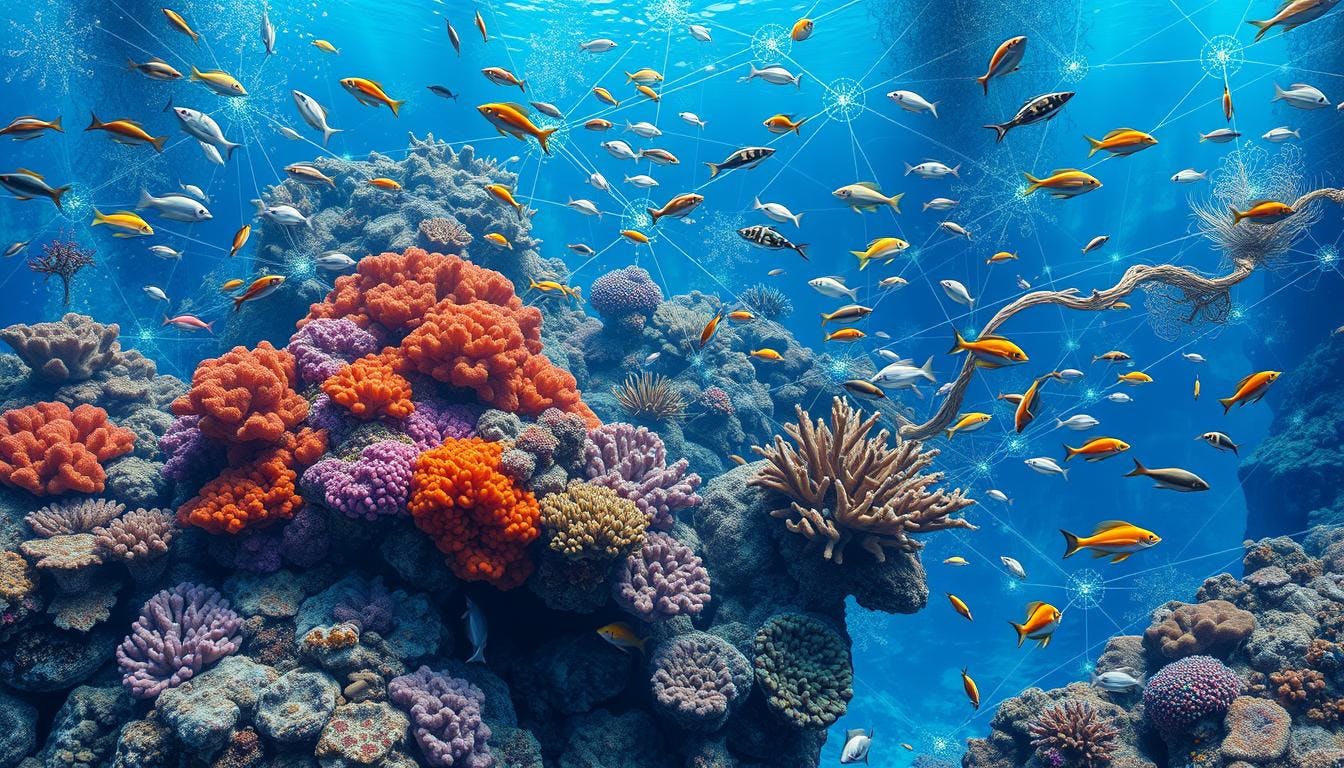
The importance of global action
Addressing the significant impact of climate change on marine life requires a global effort. Agreements such as the Paris Agreement and the UN Convention on the Law of the Sea support international cooperation. They establish rules for protecting our oceans, including reducing emissions and creating marine protected areas.
Everyone can contribute as well. By making more sustainable choices, such as reducing plastic use and consuming sustainable seafood, we all play a role. Together, we can lessen the damage climate change causes to our oceans.
The future of marine life on our planet depends on collective action. We must discover new ways to safeguard our oceans. A global effort to care for the environment is essential for maintaining healthy oceans for future generations.
17 South Street
Auckland 1010
New Zealand
info@carbonclick.com- -
- X
Subscribe now to stay up to date with CarbonClick, carbon offsetting and climate action.
By signing up you agree to our Privacy Policy.


